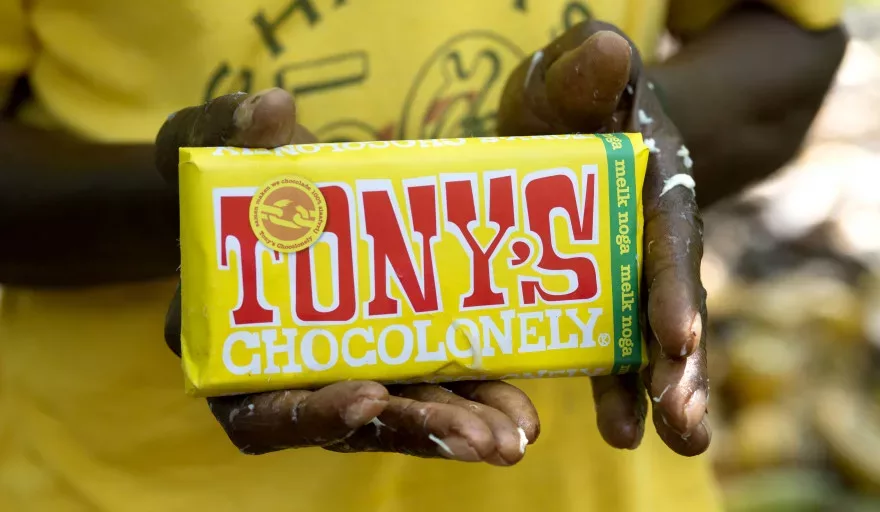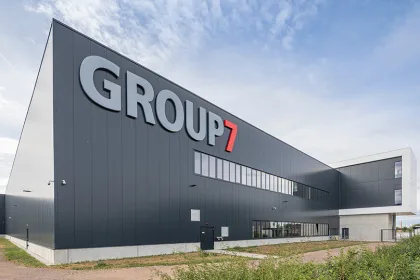As consumers become more conscious about the origins of where products come from, we caught up with Tony’s Chocolonely to see how inequality can be removed from the industry.
Everybody loves chocolate. That’s more or less a fact. But among the vast and various companies that place bars, boxes, and buttons on our shelves we often forget to consider an important question at the centre of business today. Are the products sustainable? And, if so, are they ethical?
Over the course of the past decade especially, there has been a huge shift in recognition for worker’s rights and environmental preservation at both the company and consumer end. The everyday consumer is not just thinking about what they would like and when they would like it, but also the deeper processes behind production. The effects of waste, and the working human rights issues that overshadow the reputation of many companies out there (food and beverage or otherwise), is more realised then ever before. Brand missions remain a key factor in consumer thinking, and because of this, there is a great shift in what we buy and why.
“Consumers are actively seeking out more authentic brands with true missions,” comments Ben Greensmith, UK Country Manager at Tony’s Chocolonely.
With family roots and influence in the food and beverage industry, Ben Greensmith had worked with Innocent Drinks for eight years before taking up the exciting opportunity to help build Tony’s Chocolonely overseas in the UK.
Starting with Selfridges, Greensmith has helped the Dutch company expand through the UK market, seeing products stocked in other well-known retailers such as Ocado, Waitrose, much of the Sainsbury’s estate, and other independent retailers.
“I’ve always had a love for building businesses” he says. “To be able to take an amazing brand, great-tasting product and a single-minded mission and bring it to the UK has been the best thing I’ve done”.
Having only arrived in the UK as of 2019, Tony’s Chocolonely has boomed and been welcomed as an authentic brand that places “purpose and planet above profit”. The company mission has become one of the primary factors behind its success with £2.8 million revenue being delivered during its first financial year in UK and Ireland, and then doubling the following year. On top of this, the community of both dedicated customers and brand advocates has tripled, spreading the influence of the company’s positive brand mission on its behalf. “That said, we’re only just starting,” Greensmith says.
For a company and brand such as Tony’s Chocolonely, future goals are both grand and demanding. Not only does the company seek to expand awareness of its sustainable and ethical mission, but also focus on challenging the ingrained players in the market to adapt.
“To really make an impact, and to change things, we need to show that our business model is scalable,” Greensmith says.
An issue that arises when regarding change in businesses is implementation through a smooth transitional clarity. Tony’s sits in a multi-billion-pound market, one that houses major chocolate companies with decades of presence. A change like this does not happen overnight.
For the consumer, however, this change in production is positive – it means more sustainably sourced cocoa through ethical and fair means. Greensmith believes that, should other companies follow the same brand mission that Tony’s was built around, “everyone can enjoy their chocolate guilt-free”.
He goes on to say: “Our mission starts with consumer issue awareness and then arming these consumers with the information and facts they need to demand change from their favourite chocolate brands. We don’t want people to have to stop buying their favourite chocolate bars because the cocoa isn’t sourced responsibly, we want those chocolate companies to change how they source”.
It is not only the low prices offered by major chocolate brands that are fuelling the unfair cocoa trade in areas of Africa and abroad. Despite a significant rise of awareness, the recognition of processes within the cocoa industry still remain unknown to most general consumers. The bulk of these consumers purchase cheaper chocolate options without ever hearing or learning of the unfair conditions of the cocoa farmers on the production side.
“Currently there are 2.1 million children working illegally on cocoa farms in Ghana and Ivory Coast where 60 percent of the world’s cocoa is grown. There are also at least 30,000 instances of modern slavery where children are trafficked to work on cocoa farms,” Greensmith continues.
“This is a direct result of the poverty that the majority of cocoa farmers live in. Big chocolate companies are profit-driven and so it is in their best interests to keep the price of cocoa low – inhumanely low in our opinion.”
Yet Tony’s Chocolonely aims to combat this problem. The company can put its brand mission success down to a few practices that achieve fair and practical results.
Tony’s Beantracker is one of these. As well as providing production updates from where the cocoa is being supplied (such as Ghana or Ivory Coast), the actual volume of beans is also trackable. This ensures the regulation of cocoa beans delivered to (and processed within) Belgium and, most importantly, provides the percentile knowledge of individual efforts. From this information farmers can be paid what they deserve for their work, reducing unregulated labour exploitation.
“There are over two million children working illegally in West Africa as a result of poverty. The good news is there is a solution and we’re part of it,” Greensmith says.
Working together with the International Cocoa Initiative (ICI), Tony’s Chocolonely implemented the Child Labour Monitoring and Remediation System (CLMRS) to monitor and prevent the risk of child labour, as well as raising the living conditions of individual cocoa farmers. Through a variety of means, Tony’s Chocolonely is able to set the bar for moral and progressive attitude towards chocolate production.
“Changing consumer behaviour is vital to achieving our mission,” Greensmith adds. “Awareness of slavery in the chocolate industry is very low (<30 percent) globally, apart from in The Netherlands (where Tony’s started) where it is 70 percent. Only when consumers are aware of an issue can they make a conscious decision about what they are buying.”
Tony’s brand mission is to inform and address the problems within the cocoa industry to shift both attitude and practices of other major companies. With its impressive entrance into the UK market and growing support, time will tell how the chocolate industry moves forward.
“We need consumers to purchase more consciously and demand more from their favourite chocolate brands; we need governments to change legislation to make it illegal and punishable to knowingly have illegal labour in your supply chain; we need retailers to only source products that adhere to that law and ultimately we need the biggest chocolate companies to change the way they source their cocoa,” Greensmith finishes. “It’s a huge problem to fix but we are making fast progress and will not stop until we get there.”
TONY’S RECIPE FOR SLAVE-FREE COCOA
Chocolate can be made differently- without slavery and exploitation. These five ingredients allow farmers to make a decent living as well as giving us the knowledge on where our beans come from:
- Traceable cocoa beans: Trade directly with cocoa farmers or farming cooperatives. Research who is farming the beans and under what circumstances so you can take action.
- A higher price: Pay the farmers what they need to gain a living income. Pay additional premium to ensure the market can allow this to happen
- Strong farmers: Work together to professionalise so the farmers can change inequality.
- The long term: Give the farms five years of sales at a higher price. Give them financial stability for investment.
- Productivity and less dependency: Invest in knowledge and skills to growing cocoa and others.

































